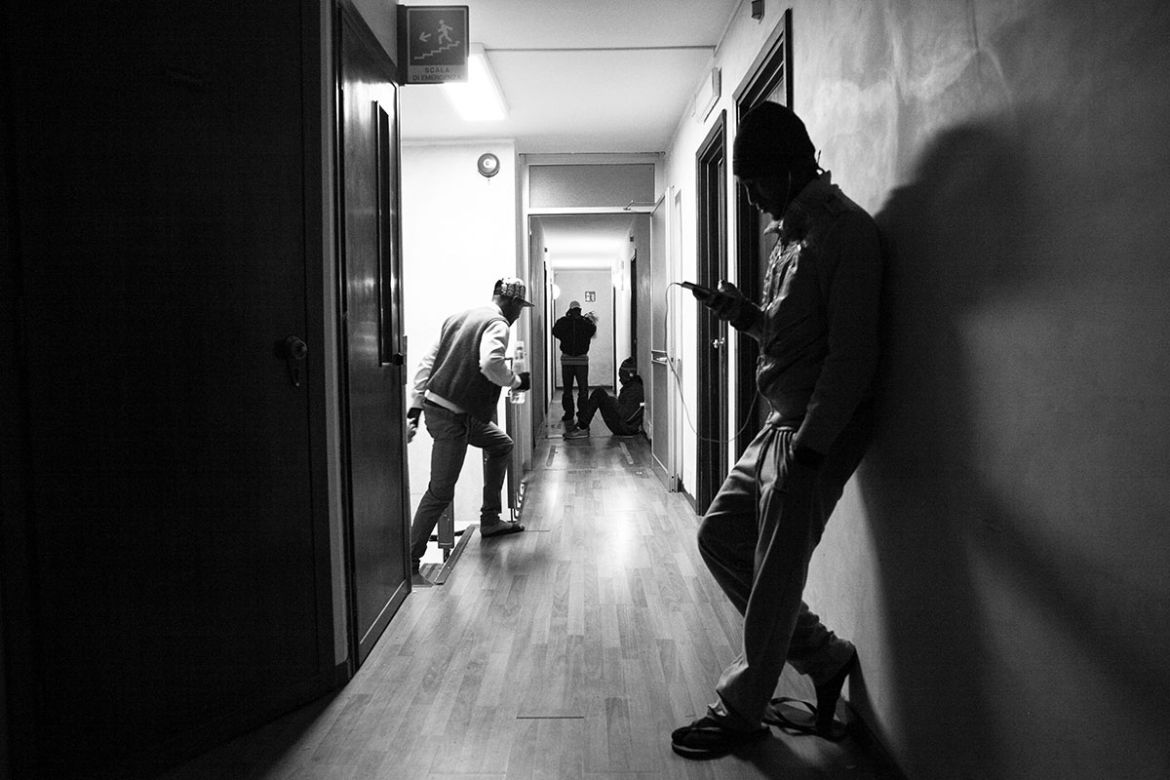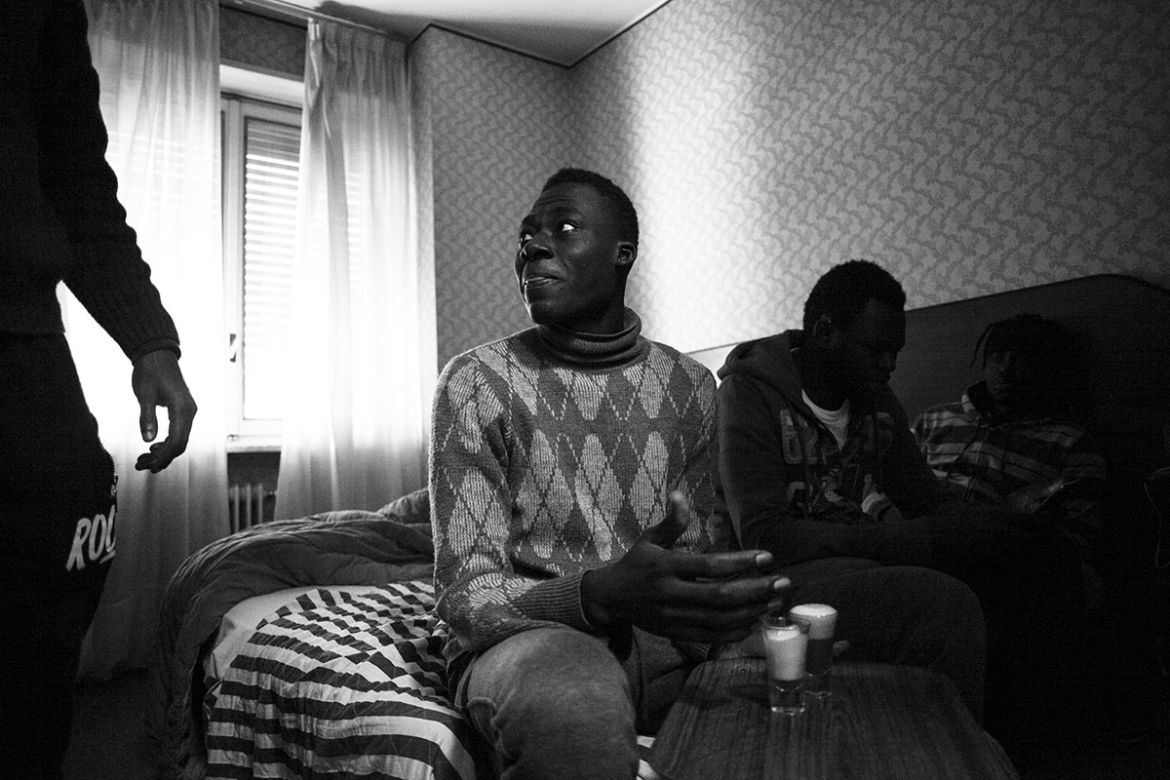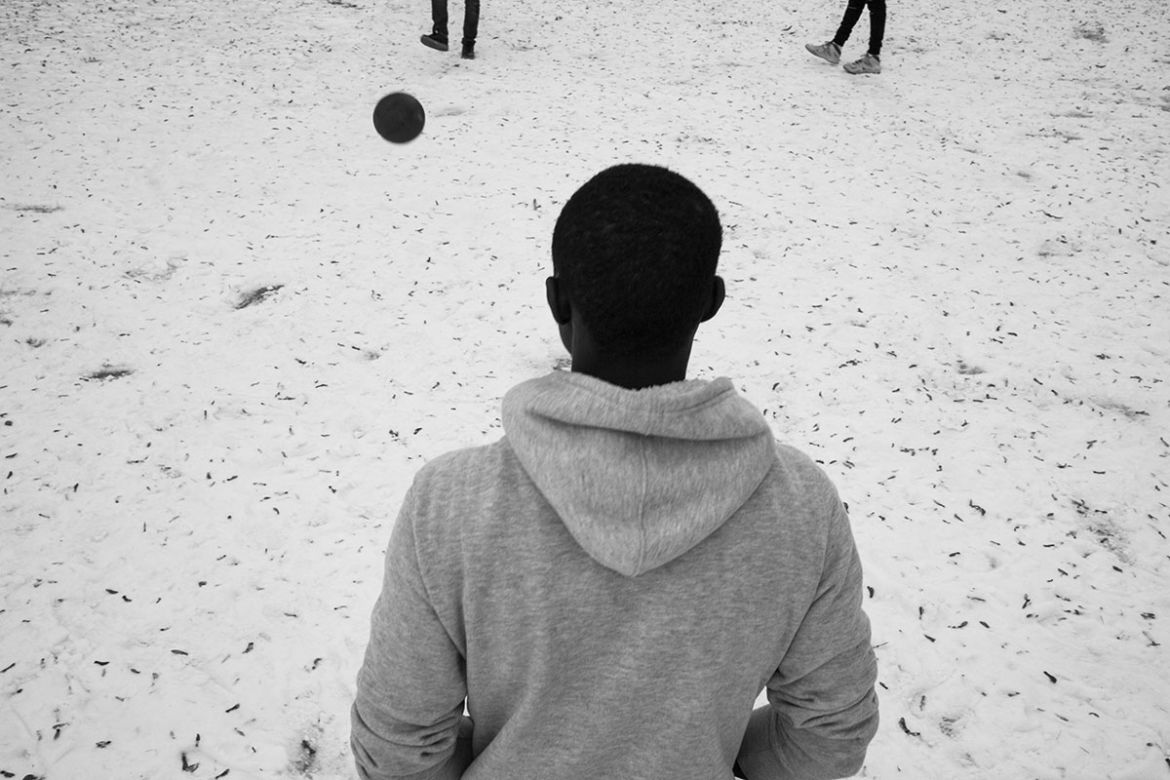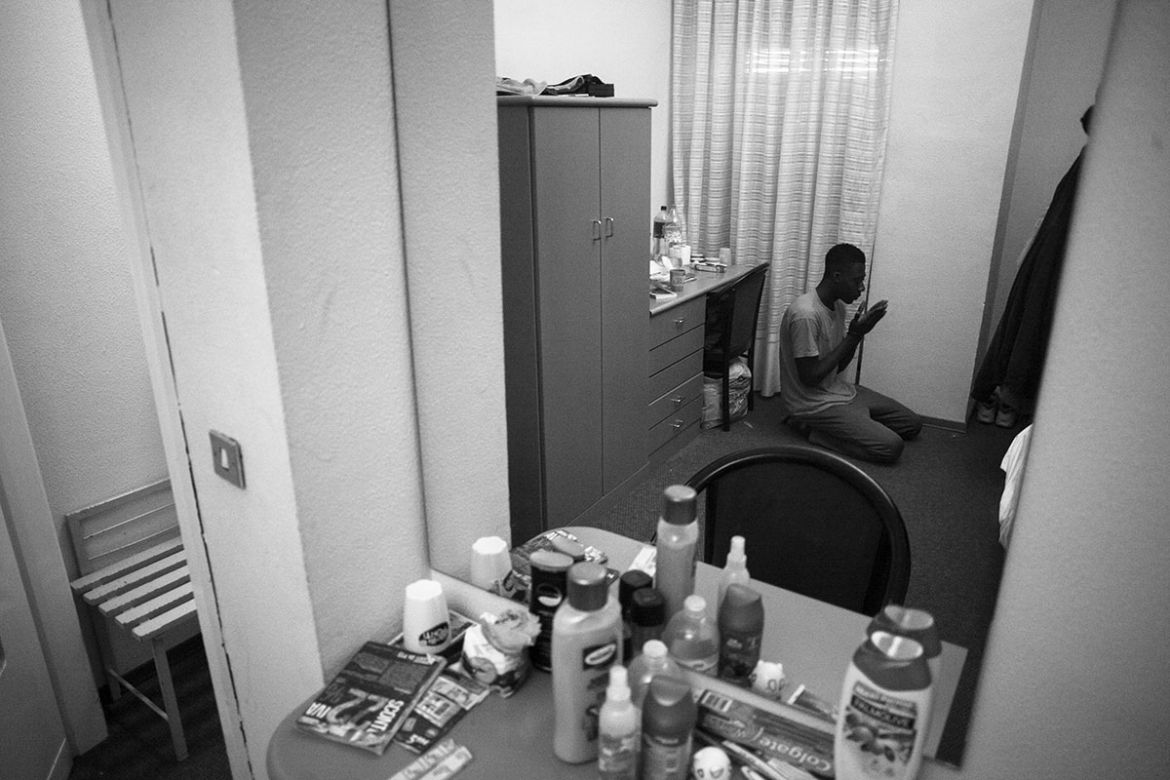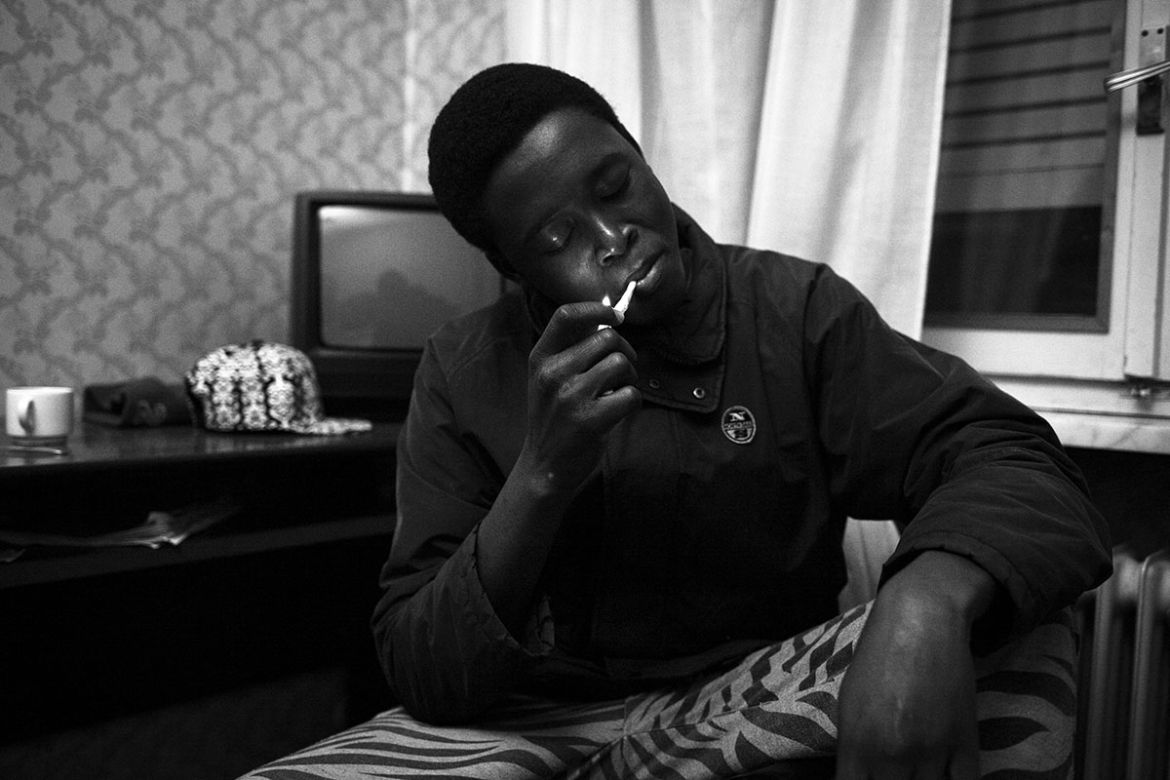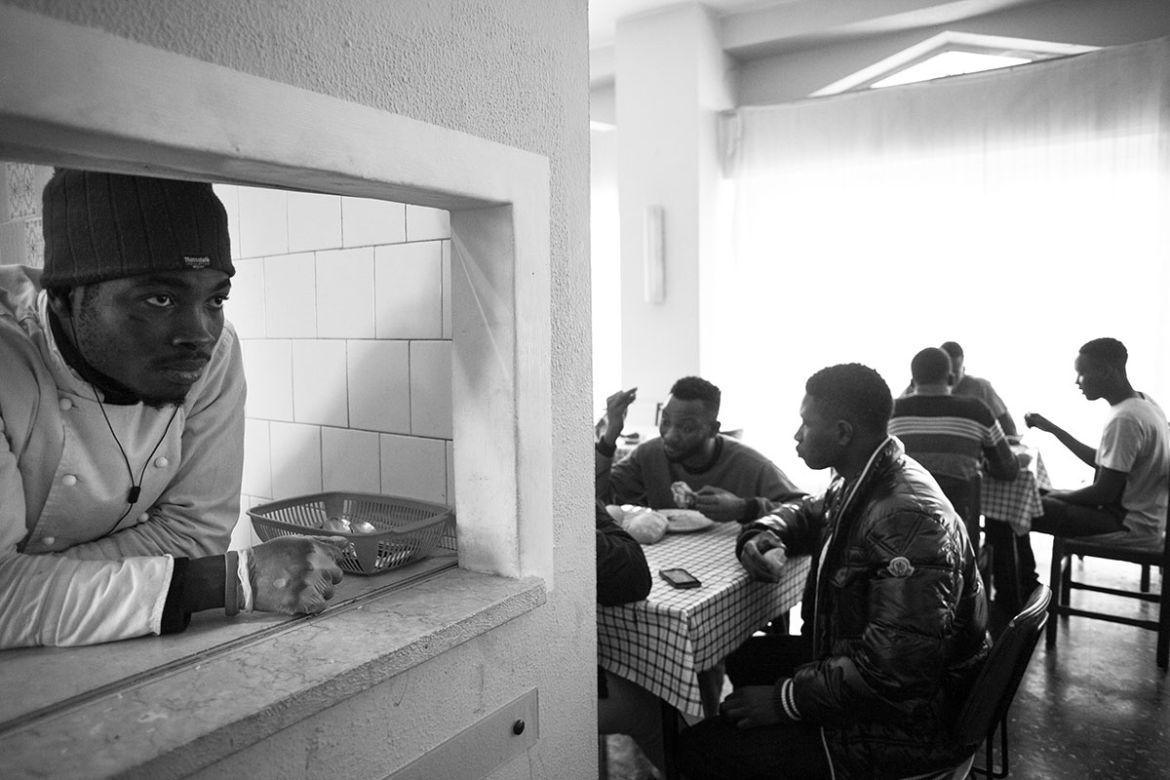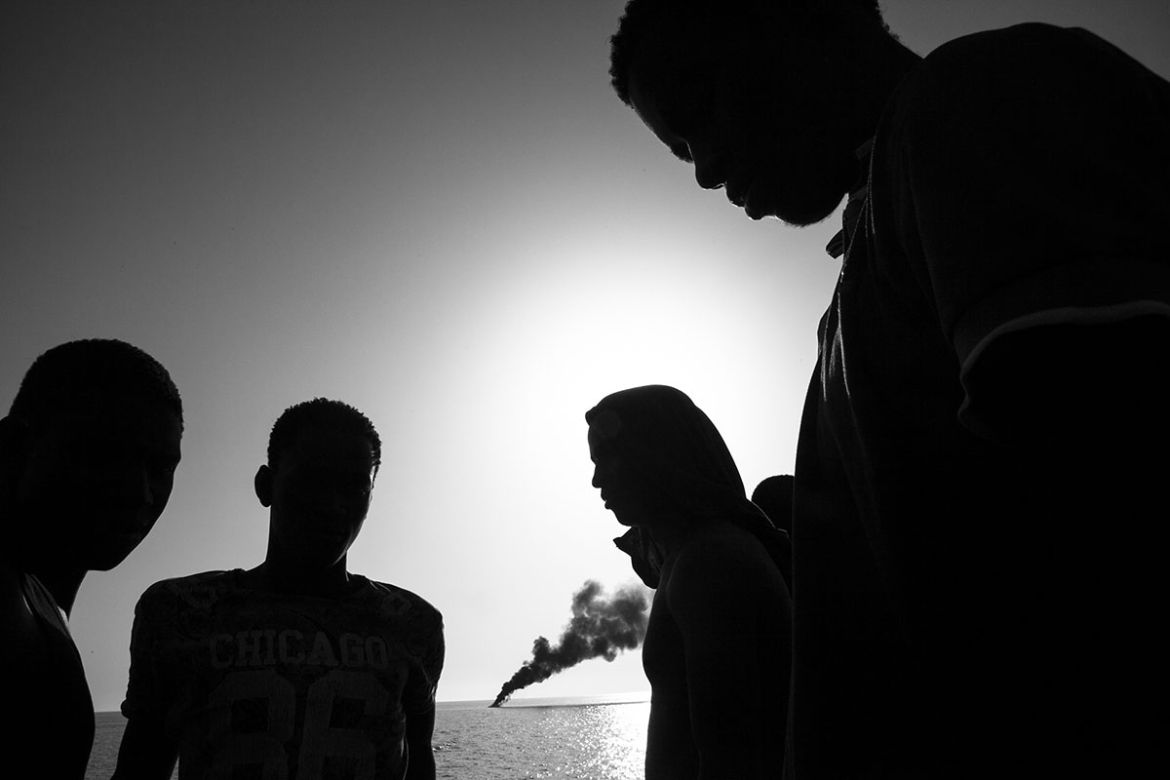In Pictures
From Gambia to Italy: a refugee’s perilous journey
After making a harrowing journey across desert and sea to reach Italy, a Gambian man waits and hopes for asylum.

When Malick Jeng, 19, left Banjul, his hometown and capital of Gambia, on March 14, 2016, he never imagined the risks he would face on his way to Europe.
Malick crossed the desert in Mali inside an oil tank where he almost suffocated. He was later held in a Libyan prison, where he witnessed the murder of some of his fellow travellers and only gained his freedom thanks to a payment sent by his family.
On the night of August 1, after a month in Libya, he was transferred by smugglers to a beach near Tripoli, where he clambered into a rubber boat with 120 people on board to cross the Mediterranean. Hours later, the rescue vessel Iuventa, from the NGO Jugend Rettet, rescued them 20 nautical miles off the Libyan coast.
Malick was first transferred to Catania, Sicily, and later to Biella, a city in the north of Italy, where he has lived ever since, in a temporary reception centre called Hotel Colibri – an old hotel that had been closed for 10 years. The hotel was turned into a reception centre for migrants in August 2016. The cooperative that manages it, which has other centres in the area, receives 35 euros ($37.7) per migrant per day from the Italian state. Malick and other migrants receive their basic necessities, including three meals per day and a bed, as well as monthly pocket money of 75 euros ($80.8).
Malick is awaiting a response to his asylum application to find out if he can begin a life in Europe legally, as a refugee, or whether he will be forced to keep fighting for his future.




